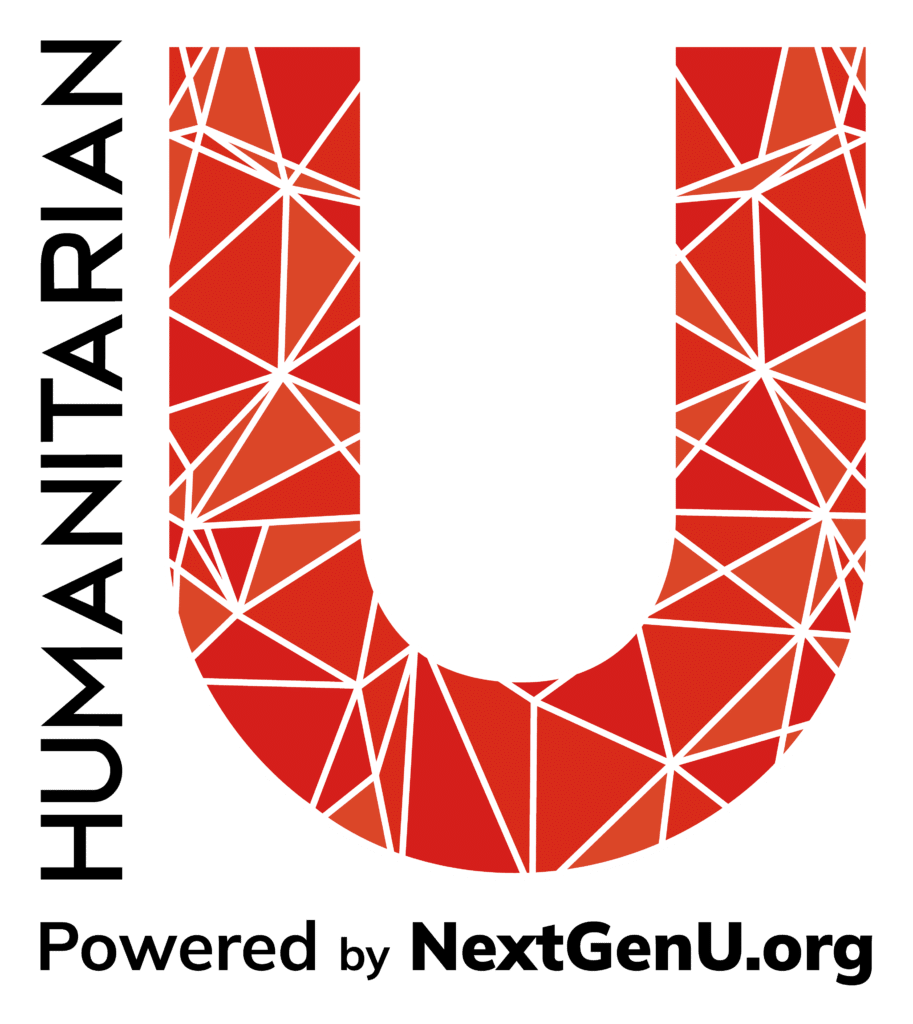September 2018, I gave a TEDx talk titled, “Making Humanitarian Response Better” for two main reasons. First, to disseminate the research findings from Humanitarian U’s Impact Study and second, to promote the importance of the professionalization of humanitarian aid workers.
HUMANITARIAN U: IMPACT STUDY
In 2016, Humanitarian U, in partnership with Medair and the Humanitarian Leadership Academy, launched a pilot study to assess the impact of Humanitarian U’S competency-based eLearning programs. The purpose was to better understand how competency-based eLearning training programs are having an impact on humanitarian work – not only ‘how’ the eLearning had an impact, but also in ‘what ways’ it contributed to strengthening and improving coordination and service delivery. Figuring out the impact of training on program delivery and beneficiary experience had never been done before since it is not an easy thing to do.
Our study showed that overall, participates felt:
- Their new knowledge and skills were directly applicable to their work
- Their learning would result in positive changes to the outcomes of their work
- They were better equipped to effectively do their job after participating in the training program
- They were confident that the programs delivered by aid workers trained in Humanitarian U’s programs were better delivered
Usually, study results are delivered through presentations at conferences or published in academic journals. It’s my feeling that these platforms, while valuable, the message never gets to the wider audience. I thought that a TEDx talk would provide an excellent opportunity for our Impact Study on Humanitarian Professional Leaning results to have a broad viewership.
I also wanted to get the message out that the humanitarian response sector is growing and there is a need for trained, competent and professional humanitarian aid workers.
TRAINED PROFESSIONAL HUMANITARIAN AID WORKERS BENEFIT EVERYONE
At the beginning of 2017, more than 128 million people needed humanitarian assistance in 33 countries. The UN Office for the Coordination of Humanitarian Affairs appealed for over $22 billion – the largest ever launched.
That means there are more people who are on the move since World War II.
There are ongoing wars in DRC, Iraq, Syria and Yemen and famine in Nigeria, Somali, Sudan and Yemen. We know from climate change data that the number of disasters is also increasing. The total number of people affected by disasters in 2016 (569.4 million) was the highest since 2006, far above the annual average (224.1 million). Most of these people are in SE Asia, affected by floods. But droughts have also played a role, impacting millions across China and Africa. The economic cost of natural disasters in 2016 was $154 billion.
It is hard to put estimates on the numbers, but it is thought that there are at least 5,000 organizations that are active in acute humanitarian emergencies and possibly as many as 20 million individuals who volunteer or work full time in this sector.
A study from 2008 estimated that there were 500,000 full time, professional aid workers and that this number was increasing at 6% a year. That would put the number at around 850,000 today. That doesn’t include the academics, the health professionals that work in their cities but deploy as part of emergency medical teams or engineers or accountants or teachers who do the same.
HUMANITARIAN AID: WHY PROFESSIONALS LEARNING IS IMPORTANT
There are thousands, if not millions of people around the world who deploy into emergencies in countries other than their own – or who work in their own country – most humanitarian workers are national staff – into cultures or languages foreign to what they know and contexts that are unfamiliar to help people in need. Over the years, the practice of humanitarian aid has become a profession, driven by science, evidence and practice.
Humanitarian aid workers need to have a defined body of knowledge, skill and competencies.
On top of what they already know for their line of work, they must also know about the humanitarian system, the actors, the principles and codes of conduct. They need to know about the technical sectors that are common: water, sanitation, food, nutrition, shelter, health, protection. They need to know about security and how to negotiate access. They need to know about international humanitarian law, leadership, managing people, and managing themselves in a stressful environment.
I recently found an article published a while back in the Harvard School of Public Health Journal called “Can doing good be done better”- it made me reflect on the TEDx talk and helps to support the work behind the mission of Humanitarian U. It was an interview by my mentors Drs. Leaning and VanRooyen and my colleague Dr. Parmar at HSPH about the importance of better-trained aid-workers, which you’ll find here.
HUMANITARIAN U: OUR COMMITMENT TO AFFORDABLE AND QUALITY LEARNING
I have been committed to the provision of high quality, standardized, competency-based training and certification of the humanitarian workforce for the last fifteen years. The sector now recognizes the importance of professionalization and even now, certification.
Gone are the days of disaster tourism.
I applaud the WHO Emergency Medical Teams Initiative who is hosting their 3rd Global Meeting in Thailand right now. For more information on this conference, please click here.
The WHO Emergency Medical Teams (EMTs) has set a precedent in demanding that all EMTs have trained individuals and that each team is vetted by the WHO organization before being allowed to participate. I hope that other aid organizations and agencies will start to follow suit.
We all need to commit to delivering the highest quality of aid possible – there is too much at stake to do any less.
Here’s my TEDx Talk on “Making Humanitarian Response Better” I hope it inspires you to take action and get certified.

